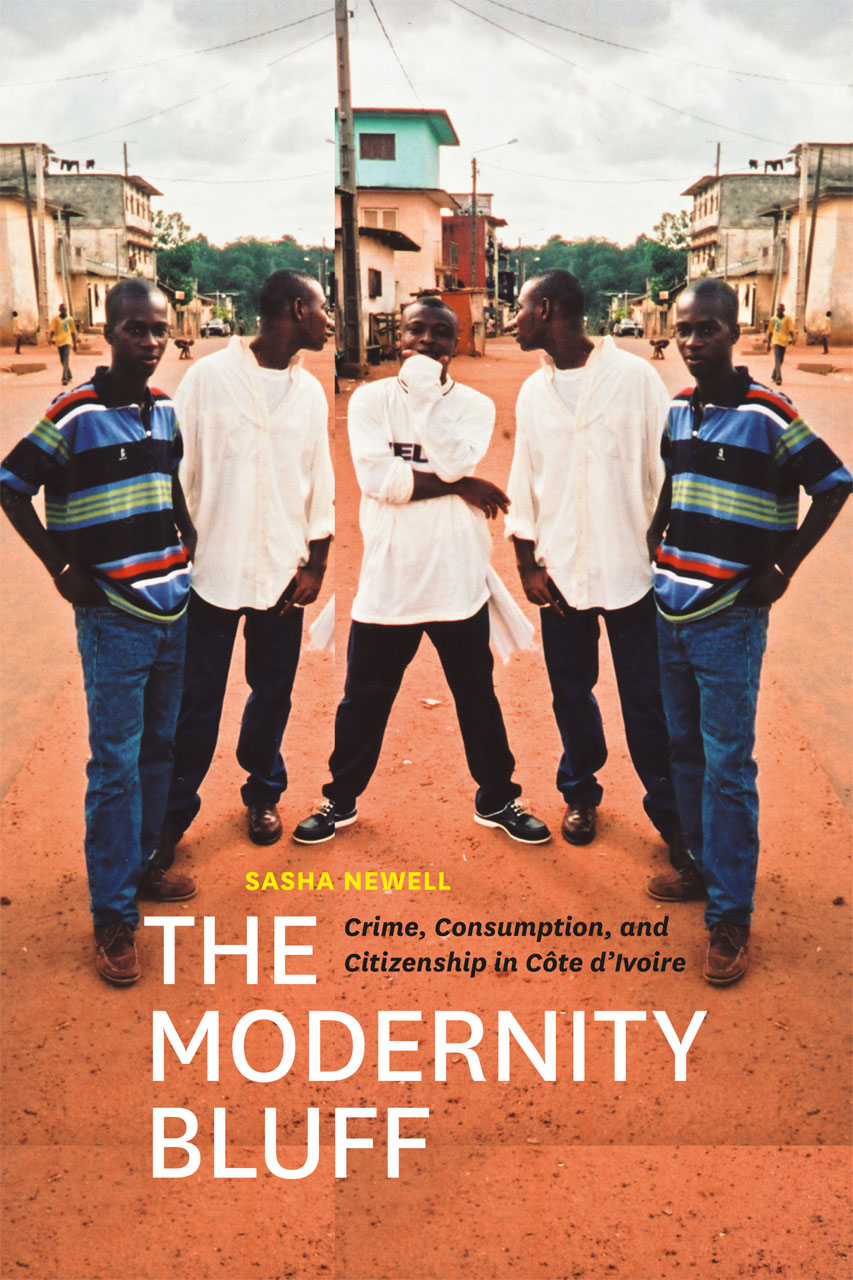Sasha Newell. 2012. The Modernity Bluff: Crime, Consumption, and Citizenship in Côte d’Ivoire. Chicago and London: The University of Chicago Press. 305 pp. [original source: African Studies Quarterly | Volume 14, Issue 3 | March 2014; pp. 143-145]
Sasha Newell’s The Modernity Bluff starts out by pulling the reader into one of Abidjan’s typical outdoor bars where, around tables fully covered with bottles, groups of young men lavishly outspend each other. They flash rolls of money, prominently display their cell phones, and exhibit their prestigious US brand name clothing in the most refined ways. We witness a bluff: many of those indulging in seemingly unlimited consumption that night “would struggle to find enough money to feed themselves the next day” (p. 2). What follows is an extraordinary account of how such bluffing makes sense in the Ivoirian context. Newell delineates in its most intricate details how the fakery of being wealthy and the performance of being “modern“ (i.e. “Westernized“) are of constitutive importance to such diverse phenomena as street language (chapter 1), the illicit urban economy (chapter 2), masculinity and social cohesion (chapter 3), consumption (chapter 4), migration (chapter 5), and the Ivoirian political crisis (chapter 6).
